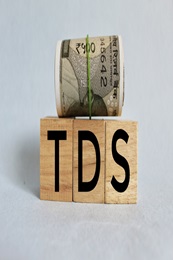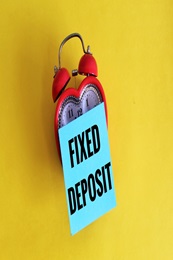FD Nominee vs Legal Heir: A Tale of Asset Transfer and It’s Complexities
April 15, 2025

Imagine this: Anil, a middle-aged professional living in Mumbai, has worked hard his entire life. He opened a fixed deposit account years ago to secure his family’s future. In his later years, he carefully nominated his daughter Priya as the nominee for his Fixed Deposit (FD). But one unfortunate day, Anil passes away unexpectedly, leaving his family in shock.
As his wife, Meera, tries to navigate the bureaucratic maze of his money matters, she faces a dilemma: Who is entitled to Anil’s fixed deposit funds—the nominee, Priya, or his legal heirs, including her? What happens now? Can Priya access the funds immediately, or will the family have to fight it out in a legal battle?
This story highlights the critical differences between an FD Nominee and a Legal Heir, and how these distinctions affect the transfer of assets when the account holder is no longer around.
The First Glance at an FD Nominee
Meet Priya: The Nominee
Priya, Anil’s only daughter, was named the nominee on the fixed deposit account. The nominee is often the first in line to receive the assets upon the account holder’s death. However, Priya is not the legal owner of the funds. Her role is to claim the amount on behalf of the legal heirs—which could include her mother Meera, and potentially other relatives.
When Anil’s passing was confirmed, Priya walked into the bank, ready to claim the FD funds. But there’s a catch. While she can receive the funds directly from the bank, she does not have the right to distribute or manage the money as she wishes. Priya’s role is purely administrative—she’s responsible for safeguarding the funds until the rightful legal heirs come forward.
“But I was named as the nominee,” Priya thinks. “Why can’t I do whatever I want with the money?”
The reality is, a nominee cannot take ownership of the funds. In this case, the legal heirs—the family members who are entitled to the assets based on the Laws of Succession—will eventually receive the FD amount after providing proper documentation.
Enter the Legal Heir: Meera’s Claim
Meet Meera: The Legal Heir
Meera, Anil’s wife, is one of the legal heirs. As the surviving spouse, she is entitled to inherit a share of her husband’s assets. Unlike Priya, who acts as the intermediary, Meera is the legal heir who holds ownership rights over the fixed deposit, as per succession laws.
As the legal heir, Meera must provide legal documents to claim Anil’s FD. These may include a death certificate, the will (if one exists), or a probate order issued by the court. Once Meera presents these documents to the bank, she will be granted full access to the FD funds.
“I need to gather all the legal paperwork,” Meera realizes, “but what if Priya doesn’t agree with the division of assets?”
While Priya might have been the first to claim the funds as a nominee, Meera, as the legal heir, has the right to inherit the FD amount. If there were any disputes among family members regarding the distribution, it could mean a lengthy legal process. This emphasizes the importance of having a will in place, which can clarify the intentions of the deceased and avoid unnecessary complications.
The Dilemma: What Happens When Both Are Involved?
In some cases, like Anil’s, a fixed deposit holder may appoint a nominee but also leave behind a spouse, children, or parents as legal heirs. This situation can lead to confusion about who has priority in claiming the funds.
If Anil had made Priya his nominee but didn’t specify how the FD was to be divided, Priya would initially be able to access the FD. But, if Meera contested the claim, she could produce evidence of her status as a legal heir and request her rightful share. This is why banks have strict procedures to determine who gets access to the funds.
In most cases, the nominee will be the first to claim the FD funds, but it doesn’t mean they can distribute them as they wish. Legal heirs must ensure their rights are protected, especially in the absence of a will.
The Role of the Bank: A Protector of Assets
The bank’s role is to ensure that the funds are transferred correctly, whether to a nominee or legal heirs. They verify the identity of the claimant(s) and ensure compliance with the legal requirements. But they can only do so much—if there’s a dispute between the nominee and the legal heirs, the bank can’t make the final decision. It’s up to the court to resolve any conflicts.
In Anil’s case, after Priya claims the FD amount, Meera will need to ensure the transfer is made according to her legal rights. If Priya and Meera agree, the transfer is easy. If not, they may need to resolve it through legal proceedings.
Disclaimer: The characters and events depicted in this blog are purely fictional. Any resemblance to real persons, living or dead, is purely coincidental. The content is intended for illustration and educational purposes only.
Final Thoughts
The tale of FD Nominee vs Legal Heir is not just about who gets the money, but about understanding how the banking system handles the transfer of assets after death. Both the nominee and the legal heir play crucial roles, but their rights and responsibilities differ significantly.
If you have assets like fixed deposits, it’s important to:
- Appoint a nominee for a quick transfer of funds
- Ensure your legal heirs are clearly defined in a will to avoid disputes
- Understand the laws of succession to guarantee your loved ones get what they’re entitled to
By keeping these distinctions in mind and making the necessary legal arrangements, you can ensure that your financial legacy is passed on smoothly—just like Anil would have wanted.
Looking to grow your savings faster? Ujjivan SFB offers a wide range of fixed deposit products. Select the FD of your choice and take a step forward to your financial goals. Alternatively, you can browse through Ujjivan SFB product suite - our wide range of financial products are designed to make your financial life better.
FAQs
1. What is the difference between an FD nominee and a legal heir?
A nominee receives the FD funds on behalf of the legal heirs, but they do not own the funds. Legal heirs inherit the assets based on the laws of succession.
2. Can a nominee transfer FD funds to another person?
No, a nominee can only claim the funds but cannot transfer them to someone else. Only legal heirs can distribute or transfer the funds.
3. Can I change the nominee for my FD?
Yes, you can change the nominee by submitting a request to the bank and completing the necessary documentation.
4. Do legal heirs need a will to claim FD funds?
Not necessarily, but a will can simplify the process. Without a will, legal heirs will have to follow succession laws to claim the FD.
5. Who can be a nominee for my FD?
You can nominate any individual or entity of your choice, including family members or friends.
6. What if I don’t make a will?
If no will is made, your assets, including FDs, will be distributed according to the succession laws, and legal heirs must provide necessary documents to claim them.
7. Who gets the FD funds if both a nominee and legal heirs are appointed?
The nominee will typically claim the funds first, but the legal heirs are the rightful owners, and they can contest if needed.
8. How long does it take for a nominee to claim FD funds?
The process is typically faster for a nominee compared to legal heirs since nominees don’t need a probate order.
9. Can a nominee inherit the FD if there are no legal heirs?
If no legal heir claims the funds, the nominee might retain the funds, depending on the bank’s policy.
10. Does the bank decide who gets the FD funds?
No, the bank verifies the claimant’s identity but cannot decide who gets the funds in the case of disputes. That’s the role of the court.
Latest Blogs

Telangana Housing Board & KPHB Colony: A Guide to Affordable Urban Housing in Hyderabad
March 14, 2025
As Telangana continues its rapid urbanisation journey, two key housing entities—Telangana Housing Board (THB) and Kukatpally Housing Board Colony (KPHB)—have played critical roles in shaping the state's real estate ecosystem.

Does Checking CIBIL Score Frequently Lower Your Credit Points?
April 07, 2025
Imagine you're planning to apply for a home loan, a credit card, or even a car loan. Naturally, you want to ensure your CIBIL score is in good shape before proceeding.

Explained: Can NRIs Buy an Agricultural Land in India?
April 03, 2025
Real estate investment is often a top priority for Non-Resident Indians (NRIs) looking to retain strong financial ties to India.

How to Improve Your CIBIL Score from 600 to 750: A Step-by-Step Guide
April 02, 2025
Your CIBIL score is like your financial reputation—banks check it before approving loans or credit cards. If your score is hovering around 600, you might face difficulties in securing credit or may get loans with higher interest rates.

What Happens When You Leave Your Savings Account Unused?
April 01, 2025
Imagine waking up one day to find that your hard-earned money is locked away and inaccessible. Sounds stressful, right? This is precisely what happens when you leave your Savings Account inactive for too long.





